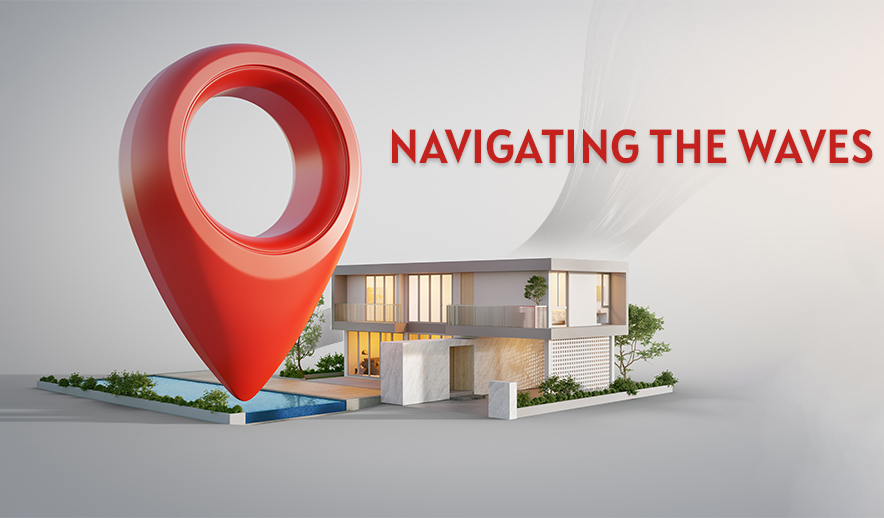Buying a home in the UAE is a significant financial decision, whether you’re a first-time buyer or an experienced property investor. With the UAE’s real estate market offering a wide range of properties, many residents look to mortgages to finance their dream homes. While there are plenty of mortgage options from banks such as Emirates NBD (ENBD), Abu Dhabi Commercial Bank (ADCB), First Abu Dhabi Bank (FAB), Dubai Islamic Bank (DIB), and HSBC, it’s crucial to ask the right questions before signing on the dotted line.
Here are five essential questions to ask your mortgage lender in the UAE to ensure that you’re making the best mortgage loan decision for your future.
1. What Type of Mortgage Is Best for Me: Fixed or Variable Interest Rate?
One of the first and most important questions to ask your mortgage lender is whether you should choose a fixed-rate or variable-rate mortgage. In the UAE, most lenders offer both options, and understanding the differences is essential for making the right decision.
Fixed-Rate Mortgages:
- With a fixed-rate mortgage, your interest rate remains the same for a set period, usually between one to five years.
- After the fixed-rate period ends, your mortgage typically reverts to a variable rate.
- Fixed rates offer predictability in monthly payments, which is ideal if you’re budgeting on a tight or fixed income.
Variable-Rate Mortgages:
- A variable-rate mortgage fluctuates with changes in the Emirates Interbank Offered Rate (EIBOR), which means your payments may go up or down depending on the market conditions.
- Variable rates often start lower than fixed rates, which can be appealing if you expect rates to remain low.
Why is it Important ?
Choosing the wrong type of mortgage can affect your long-term financial health. If you plan to stay in the UAE for the foreseeable future, a fixed-rate mortgage might give you stability. On the other hand, if you’re considering moving within a few years, a variable-rate mortgage might save you money in the short term.
How to Use This Information?
Ask your lender to explain the current trends in the UAE’s mortgage market and get advice on which option would suit your financial circumstances best..
2. What Is the Total Cost of the Mortgage, Including Fees?
When considering a mortgage, it’s easy to focus solely on the interest rate, but the total cost of the mortgage includes much more than just your monthly payments. In the UAE, mortgage fees can quickly add up, so it’s crucial to get a complete breakdown of all the costs involved.
Key Fees to Ask About :
Processing Fees: Many UAE banks charge a processing fee, typically 1% of the loan amount.
Valuation Fees: Before approving the mortgage, the bank will often send out a valuer to assess the property, and you may be required to pay for this.
Early Settlement Fees: If you want to pay off your mortgage early, some banks charge a penalty of up to 3% of the remaining loan.
Life Insurance and Property Insurance: These are often mandatory and can either be provided by the lender or sourced independently. It’s crucial to understand which option is more cost-effective.
Why is this important?
Knowing the full cost of the mortgage helps you budget properly and avoid unexpected expenses. For example, while ENBD might offer a competitive interest rate, their processing fees might be higher than those of HSBC or DIB.
How to use this information?
Ask your mortgage lender for a detailed breakdown of all the fees and costs associated with the loan. Don’t be afraid to negotiate—some banks are willing to waive or reduce certain fees, especially if you’re borrowing a large amount or have a strong credit history.
3. What Is the Loan-to-Value (LTV) Ratio and How Much Do I Need for a Down Payment?
The Loan-to-Value (LTV) ratio is a key factor in determining how much you can borrow and how much you’ll need to put down as a down payment. In the UAE, the Central Bank has set clear guidelines on LTV ratios for residents and expats.
LTV for UAE Residents : For a property under AED 5 million, the LTV is generally capped at 80% for UAE nationals and 75% for expatriates.
LTV for Non-Residents or High-Value Properties : If the property exceeds AED 5 million, the LTV decreases, with expats typically needing to provide a 30% down payment or more.
Why is this important?
Knowing the LTV ratio and required down payment is essential for determining how much cash you need upfront. For example, if you’re purchasing a property worth AED 3 million, you’ll need a down payment of AED 750,000 (if you’re an expat). This ensures you’re prepared to cover not only the down payment but also additional costs like Dubai Land Department (DLD) fees, which are typically 4% of the property price.
How can this information be used?
Ask your lender for a clear explanation of the LTV ratio they are offering and make sure it aligns with Central Bank guidelines. Banks like ADCB and HSBC typically have competitive LTV ratios, but it’s always worth shopping around to find the best offer.
4. What Are the Repayment Terms and Is There an Option for Early Repayment?
Understanding the repayment terms of your mortgage is critical to managing your finances over the loan’s lifetime. Repayment terms can vary from 10 to 25 years, and it’s important to choose a term that fits your financial goals.
Why is this important?
- Shorter repayment terms mean higher monthly payments, but less interest paid over time, while longer terms lower your monthly payments but increase the total interest you’ll pay.
- Early repayment options are particularly important if you anticipate being able to pay off the loan faster than the agreed term. In the UAE, some banks impose penalties for early settlement, while others may offer more flexibility.
How can this information be used?
Ask your lender whether you can make additional payments towards your mortgage without penalty, or if there’s a cap on how much extra you can pay each year. Banks like FAB and ENBD might offer more lenient early repayment terms, so be sure to inquire.
5. What Happens if I Leave the UAE Before the Mortgage Is Paid Off?
Given the transient nature of expatriate life in the UAE, it’s important to understand what will happen if you decide to leave the country before your mortgage is paid off. The terms and conditions for expats leaving the UAE with an outstanding mortgage can vary between banks.
Key Considerations :
Selling the Property : In some cases, you may be required to sell the property to settle the mortgage before you leave.
Mortgage Transfer : Some lenders may allow you to transfer the mortgage to a property in another country, but this option is less common in the UAE.
Rental Income : If you plan to keep the property and rent it out while living abroad, check if your bank allows you to retain the mortgage under such conditions.
Why is this important?
You need to have a clear exit strategy if you’re unsure how long you will be in the UAE. Not understanding the process can lead to complications or even legal issues if you leave the country with an unpaid mortgage.
How can this information be used?
Ask your lender what options are available if you need to leave the UAE and clarify whether there are penalties for selling the property early or renting it out. Banks may offer different policies for expats and non-residents so it’s important to understand their specific rules.
Conclusion
Buying a home in the UAE is an exciting but complex process. Before signing a mortgage agreement, it’s essential to ask your lender these five crucial questions: What type of mortgage is best for you? What are the total costs, including fees? What is the LTV ratio and down payment required? What are the repayment terms, and are there early repayment options? And finally, what happens if you leave the UAE before the mortgage is paid off?
By getting clear answers to these questions, you’ll be better equipped to choose the right mortgage and avoid potential financial pitfalls in the future. With banks offering a range of mortgage options, it’s worth doing your homework to ensure you secure the best deal for your circumstances.


